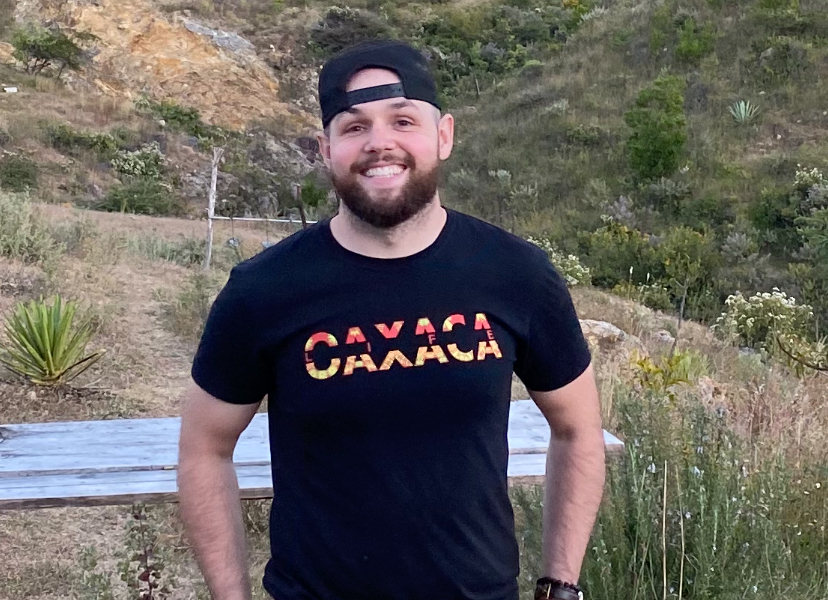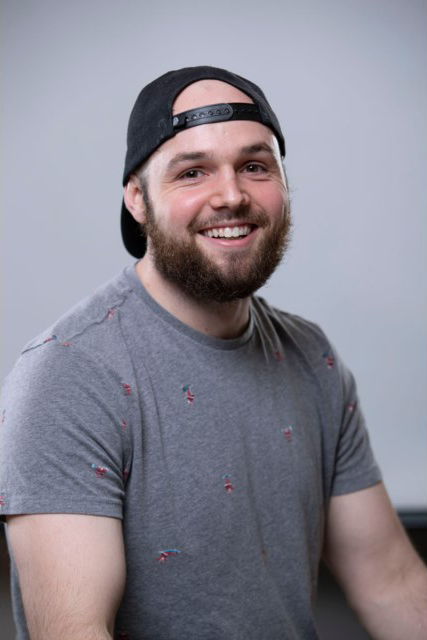Tackling Plastic Pollution in Ghana
Waste disposal site in Accra, Ghana Photo Credit: iStock/SeppFriedhuber
“I love social impact enterprises that are aimed at helping communities,” Wade Treslove says.
"What's the point of doing something if it doesn't make people's lives better? I want to be able to look at myself in the mirror and say that I contributed to society as a whole."
This year, Wade was thrilled to have the chance to make a positive difference after receiving a Canada-Africa Innovation Fellowship (CAIF) from Engineers Without Borders.
The fellowship ran from April to August 2022, just after Wade completed the joint electrical engineering program offered by the Lakehead-Georgian Partnership.

Throughout Wade's childhood, he spent long hours building complicated Lego and K'Nex construction sets. "Even as a young child I wanted to be an 'inventor' creating technology that would improve people's lives," he said when he was announced as a CAIF fellowship recipient.
The purpose of these fellowships is to bring together young leaders in Canada and Africa to collaborate on solutions to complex global challenges. This year, the fellowships were focused on using entrepreneurship to develop climate change solutions for underserved communities.
Wade worked with a team dedicated to reducing plastic pollution in Ghana—a West African country whose geography encompasses rainforests, savannahs, and coastal plains. Normally, Wade would have gone to Africa for the fellowship, however, because of continuing COVID outbreaks, he worked virtually with his three Ghanaian partners.
Even so, he had an unprecedented window into the life of another country.
"It was fantastic to be exposed to Ghana's culture and to meet their activists," Wade says.
"I was the only engineer in my group, it wasn't a bunch of tech heads. Although, like me, they'd just finished their degrees—Kingsford Amoah is a youth leader with an education degree in social studies, Gloria Ohenewaa Fosu works in marketing, and Sebastian Appram is a business graduate who'd already been working on plastic recycling initiatives for several years."
The group chose to concentrate on plastic pollution because it's a growing environmental threat in Ghana— only 5% of plastic is recycled in Ghana yearly. "There are people who earn money as pickers by sifting through garbage to find PET plastics that they can sell, but there aren't any systematic recycling initiatives," Wade says.
To address this problem, he and his teammates came up with a concept for a plastic waste segregation program called Educycle. The idea was to have schools set up plastic waste collection and sorting depots on their grounds, which would then allow them to sell sorted plastics to recyclers. In turn, these partnerships would give the schools an additional source of funding and help reduce the indiscriminate dumping of plastics.
Educycle's goal was also to foster a strong culture of recycling among youngsters by creating a fun and gamified recycling school curriculum along with events, fairs, and a robust social media presence.
"We spent a lot of weekends and late nights working on it and I learned a bunch of transferable skills related to developing and launching a start-up business."

"I'd known for a long time that Engineers Without Borders was part of important relief efforts," Wade says. "I really wanted to get involved, but I didn't know how—then I found out about the CAIF fellowship in a Lakehead engineering newsletter. My only regret was that I couldn't meet my partners in person."
Right now, Wade is working for a company called Gohn Controls in Newmarket, Ontario. Gohn is a subcontractor for General Motors and auto parts manufacturer Magna International.
"I've always wanted to work with control systems—I love automated processes, software, and algorithms—and now I get to work with big robots programming the machines that assemble automobiles. I got very lucky."
With the end of the Canada-Africa Innovation Fellowship, Wade is finding new ways to assist others. He recently finished training as a hospice volunteer.
"A lot of people who are seriously ill or dying don't have family or friends—my heart just goes out to them. My role is to provide emotional support and peace of mind."
He's also thinking of the future.
"My long-term career goal is to do control systems work overseas at a company that generates economic benefits for a region that needs it."
